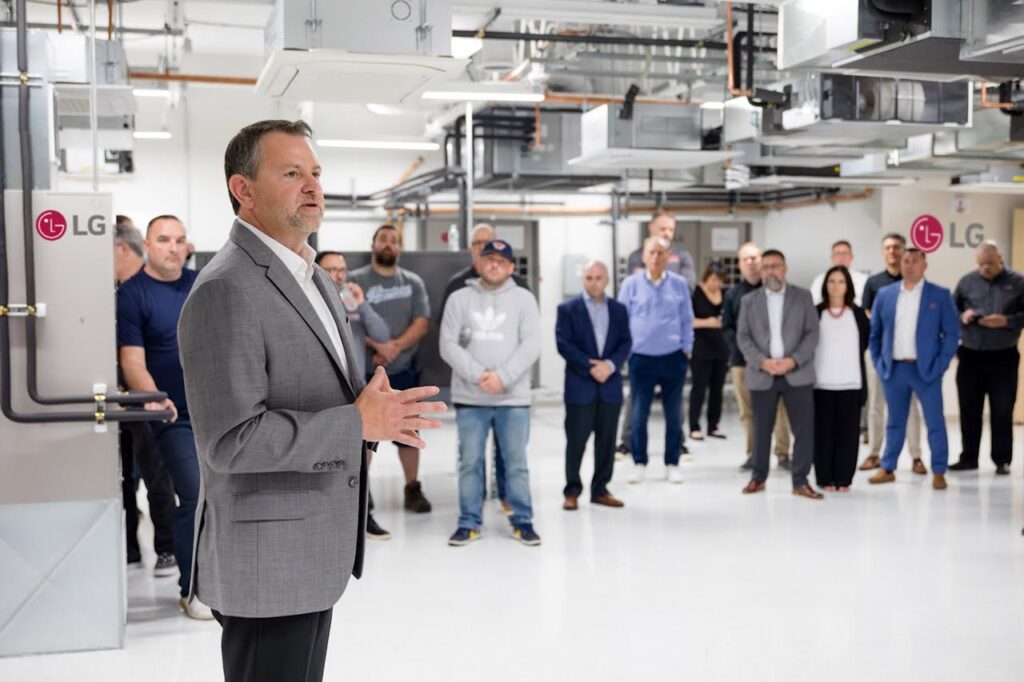LG Academy To Increase Technical HVAC Expertise in Kenya

LG Electronics’ (LG) will in 2024 train 37,000 individuals globally, on its Heating, Ventilation and Air Conditioning (HVAC) systems. This is in a bid to build a network of skilled installation and service engineers to support the management of LG equipment as the brand’s popularity continues to thrive globally.
Operating in 62 locations worldwide, the LG HVAC Academy provides comprehensive training on installing and maintaining LG’s residential and commercial HVAC systems, including its high-efficiency chillers. In Kenya, the LG HVAC Academy is run as a partnership with the University of Nairobi. The academy enhances the skill-and knowledge-base of local technicians, equipping them with the ability to ensure the optimal set-up and performance of the company’s advanced HVAC solutions – which is crucial in delivering the differentiated customer experiences LG is known for.
The Nairobi LG HVAC Academy features an integrated showroom and training rooms where attendees can gain hands-on experience with the company’s products. Along with product installation and maintenance training, the academy introduces the company’s new HVAC solutions and offers specialized regional training programs, technical forums, and customized on-site classes at clients’ offices.
“The LG HVAC Academy plays a key role in enhancing the capabilities of engineers in each region,” said James Lee, head of the Air Solution Business Unit at LG Electronics Home Appliance & Air Solution Company. “We will continue to increase customer engagement to deliver more value and drive our global HVAC business forward.”
Meanwhile, LG is targeting continued growth in the global HVAC market – which had an estimated value of approximately USD 58.4 billion in 2023* – with its high-efficiency heat pump HVAC systems, which have been designed with the latest electrification and environmental trends in mind. This is as it seeks to capture a growing market that is emerging from the growing need for high-efficiency, high-performance cooling systems in AI data centers and semiconductor plants where effective heat management is essential for maintaining server efficiency. Moreover, the company aims to more than double the revenue generated by its residential and commercial HVAC business by 2030 and reinforce its position as a worldwide leader in air conditioning.





